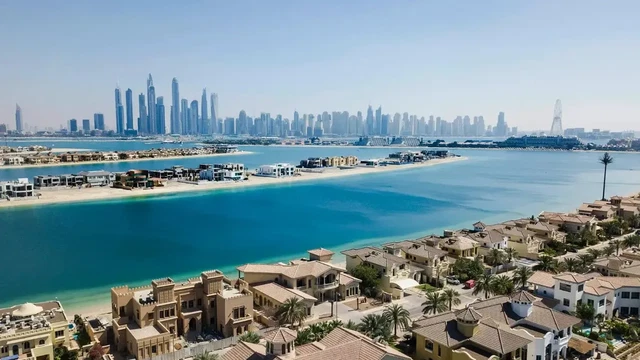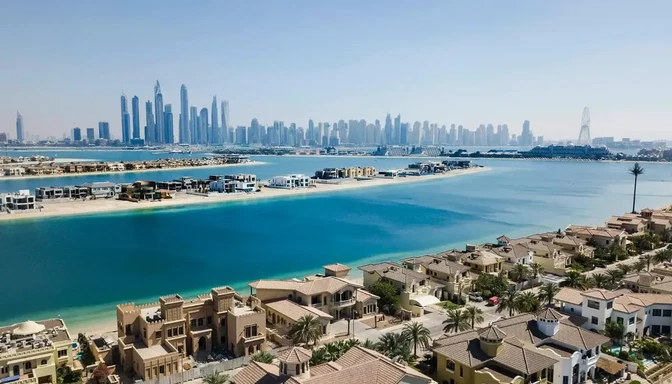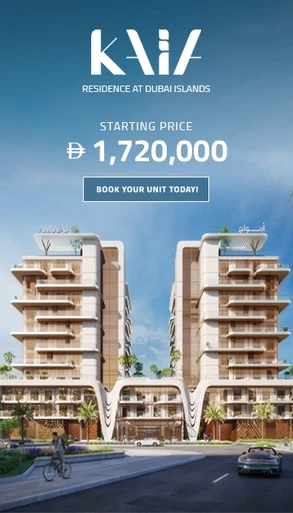Homeowners in Dubai's real estate market must keep up with emerging trends to get the most out of their properties. By comprehending the ins and outs of the local market and catering to the evolving tastes of buyers, homeowners can strategically arrange their houses for sale or rental.
The necessity of selecting the best realtor, comprehending market trends, determining the ideal price approach, improving curb appeal, and timing the sale are all highlighted in this article's six must-have ideas for maximizing property value.
Through implementing these tactics, homeowners may effectively navigate the market and maximize the value of their properties in Dubai.
In this article, We will lead you through top tips on "how to buy a property in Dubai”.

Should I Go for an Off-Plan Property?
Purchasing an off-plan property in Dubai is frequently regarded as the easiest route, even though it could take longer than other options. A brief insight on how to invest in off-plan properties is as follows:
Start by filling out an application and sending it to the developer of your choice. Once your submission has been approved, come by the developer’s sales center at a time that has been prearranged. This is where you may choose the unit of your choice and pay the first installment.
The time it takes for you to receive the property could be two to three years, depending on how far along construction is. An anticipated date of delivery for the unit should be given to you by the developer.
Process of Buying Property in Dubai
You may easily navigate the process of buying property in Dubai by following these steps.
1. Know The Laws of Property Acquisition In Dubai
The Land Registration Law, also known as Real Estate Law No. 7 of 2006, establishes the legal basis for property acquisitions in Dubai. The requirements for being eligible to own a property in Dubai or the emirate are outlined in Article 4 of this Act.
Here's a question comes in mind can a foreigner buy property in dubai?
According to the law, foreign nationals, GCC citizens, and UAE citizens are all allowed to own property, subject to a few restrictions.
Only homes in regions officially designated for foreign ownership can be purchased by foreigners. Foreign nationals can own property in two main ways: freehold and leasehold.
While freehold ownership confers total ownership of the home and the ground it sits on, leasehold ownership gives buyers property rights for a set amount of time.
2. Choose The Best Real Estate Agent

For homeowners wishing to sell or rent their house, navigating Dubai's real estate market may be quite challenging. In this case, having a trustworthy realtor is beneficial.
Realtors with experience know the market and the law, so they can obtain the best price for your home. Selecting an agent who shares your vision and has a solid track record is crucial.
A reliable real estate agent puts your needs first, speaks clearly, and helps you every step of the way. Finding the ideal agent could take some investigation, but it will be worthwhile for a smooth real estate transaction.
3. Research and Analyse Market Statistics
Selecting from so many prime areas is the challenging aspect of real estate investing. You need to study the real estate market thoroughly if you want to be sure that your investment yields the highest profits.
As an interested investor, you can investigate financial market trends, forecasts, and investment techniques. Recent construction projects that may be of special interest to investors are Ellington's Hillmont Residences, Danube's Diamondz, and Emaar Park Lane at Dubai Hills.
4. Make An NOC Application
Everyone who is going to be involved will meet at the developer's offices to start the application procedure for a No Objection Certificate (NOC) to sell the property. Usually, a charge (which can range from AED 500 to AED 5,000, depending on the developer's regulations) is required before the developer gives the NOC.
The developer verifies that any alterations made to the property adhere to developer requirements and that any unpaid service charges owing by the seller have been paid before issuing the NOC.
A developer's office representative may occasionally visit the property following the NOC application. Additionally, some developers could ask for a refundable deposit from the purchase, which is returned when the buyer updates their account and presents the new title deed at the developer's office.
The NOC application can take up to five business days to process on average. A seamless and legally compliant transfer of property ownership in Dubai is ensured by this procedure.
5. Settle At A Reasonable Price
With so much information available to them, buyers in the current real estate market can make well-informed selections about the valuations of homes. Once you've chosen a reliable agent and educated yourself on the local real estate market, it's clear how important it is to price your house correctly.
This entails determining a price range that fairly represents the value of your home while also appealing to prospective purchasers.
Agents utilize a Comparative Market Analysis (CMA) as a critical tool to develop the best possible pricing strategy. The CMA assists you in avoiding both overpricing and underpricing by closely evaluating recently sold properties that are comparable to yours.
While overpricing may need future price reductions or lengthen the time the property is on the market, underpricing carries the risk of undervaluing the asset.
To enhance investment returns and ensure a successful sale, it is crucial to apply a balanced pricing plan backed by in-depth research and agent experience.
6. Choose The Ideal Time To Sell

The right moment is important when it comes to selling or renting your property since it affects the price and the amount of time it is listed for sale.
The accumulation of equity, individual life events, and seasonal variations, including increased demand prior to the commencement of a new school year or during breaks, are some of the elements that influence timing.
Finding the right moment to sell requires taking into account not only significant life changes such as moving, growing a family, or changing occupations but also evaluating your equity position in the home.
Things to Know Before Buying Property in Dubai
There are many things to consider when estimating the expenses of buying property in Dubai:
1. Budget
It's critical to analyze how buying a property will affect your monthly spending. One of the biggest mistakes individuals make with money is to go house hunting and then find an ideal property before looking over their monthly budget and figuring out whether they can manage monthly repayments as well as other connected charges.
2. Transfer Fees
These costs, which are determined by the property's worth, are paid to the Land Department to transfer ownership of the land. For plots, off-plan properties cost AED 40, apartments and offices cost AED 580, and the Dubai Land Department (DLD) levies 4% of the sales price as transfer costs in addition to a knowledge fee of AED 430.
3. Mortgage
Should you want to finance the purchase through a mortgage, there can be application costs. The Dubai Land Department (DLD) levies a mortgage registration fee to buyers of real estate in Dubai.
This tax is equal to 0.25% of the loan amount plus AED 290. In addition, in order to receive a No-liability letter, the buyer must pay off the seller's mortgage if one is recorded on the property. The property transfer procedure with the DLD requires this letter.
A legal document known as the No-opposition Certificate (NOC) attests to the seller's payment of all outstanding debts and the developer's lack of opposition to the sale.
4. Miscellaneous Administrative Costs
The Land Department may be required to pay these fees for a variety of administrative duties associated with the transfer of land.
Read More:






